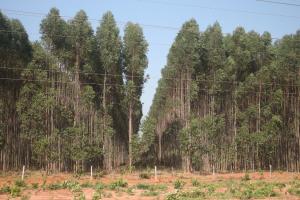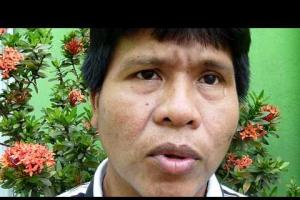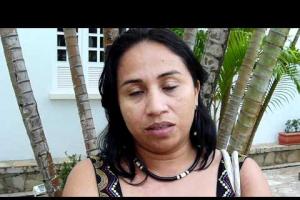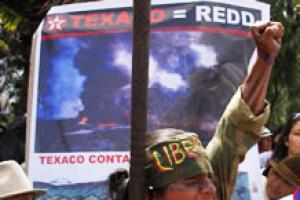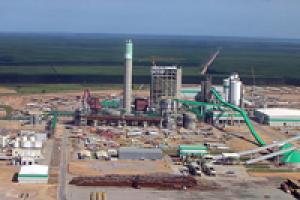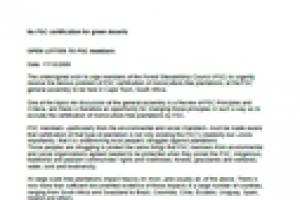Throughout history, rural areas have been occupied two different ways in Brazil. One of them is the colonial, capitalist and entrepreneurial way, which is nothing new, but has recently gained new momentum and adopted new methods. The other way of occupying rural land, which dates back to before the capitalist production model, is that of peasant agriculture, based on the way of life of indigenous peoples and traditional communities
Brazil
Bulletin articles
29 January 2012
The year 2011 was declared the International Year of Forests by the United Nations. Major international events such as the climate conference in South Africa and the upcoming Rio+20 summit in Brazil and biodiversity conference in India have also contributed to making forests a key issue on the global agenda, as well as the subject of high-profile public relations campaigns.
Other information
30 December 2011
Governor Jacques Wagner and Environment Secretary Eugênio Spengler are preparing to give the people of the extreme south, south and southwest regions of the state of Bahia a SPECIAL CHRISTMAS PRESENT on December 21. The news has been leaked that regardless of the shortcomings of the corresponding EIA/RIMA (Environmental Impact Study/Environmental Impact Report), authorization will be granted for the expansion planned by Veracel Celulose. Although the EIA/RIMA contains numerous errors, this will pose no impediment.
Bulletin articles
30 November 2011
A new expansion cycle: carbon and biomass plantations
Bulletin articles
30 November 2011
The state of Acre, in the Brazilian Amazon region, earned worldwide attention in the late 1980s through the struggle for social and environmental justice waged by the late Chico Mendes. In more recent years, the state has once again gained prominence in Brazil and internationally, but for very different reasons. This time the spotlight on the state is a result of the propaganda around the “green” development model promoted through “forest governance” and based on the so-called “sustainable management” of the forests and the sale of environmental services.
Bulletin articles
30 October 2011
I come from a family that considers seeds as something sacred. Back in my father's day, our neighbours could sleep peacefully, because they knew that my father had a safe supply of seeds to plant. (Family farmer, Paraíba)
Bulletin articles
30 October 2011
On October 27, hundreds of indigenous men and women, fisherfolk and riverine community members occupied the construction site of one of the biggest hydroelectric dam projects in the world, the Belo Monte dam in the state of Pará, Brazil, which will have devastating impacts on the lives of the local population.
Other information
7 October 2011
Only available in Portuguese -
Depoimento (audiovisual) de José Luiz Kassupá sobre os impactos do mecanismo REDD na vida dos Povos Indígenas, durante a oficina "Serviços ambientais, fundos verdes e REDD: Salvação da Amazônia ou Armadilha do Capitalismo Verde", 3-7 de outubro em Rio Branco (AC), Brasil. José Luiz é primeiro secretário do movimento indígena no estado de Rondônia.
Other information
7 October 2011
Only available in Portuguese
Depoimento de Sandra Lineia de Caritas Manaus (AM), sobre a relação entre o mecanismo REDD e a migração de populações tradicionais e rurais para as Cidades, durante oficina "Serviços Ambientais, REDD e Fundos Verdes do BNDES: Salvação da Amazonia ou Armadilha do Capitalismo Verde?", em Rio Branco, estado de Acre, entre 3 e 7 de Outubro de 2011
Other information
7 October 2011
We gathered in Rio Branco, in the State of Acre, on 3-7 October 2011 for the workshop “Serviços Ambientais, REDD e Fundos Verdes do BNDES: Salvação da Amazônia ou Armadilha do Capitalismo Verde?” (Environmental Services, REDD and BNDES Green Funds: The Amazon’s Salvation or a Green Capitalism Trap?)
Other information
10 September 2011
Dear friends,
We would like to invite you to support the following action, which is being launched as part of the activities for the International Day Against Monoculture Tree Plantations.
This action is being coordinated by our friends at CEPEDES in Brazil, who have been working for years to support and coordinate resistance to the expansion of monoculture eucalyptus plantations and the pulp mill owned by Veracel Celulose.
Other information
10 September 2011
Brazil, September 2011, various organizations.
Only available in Portuguese -
Read the letter here

